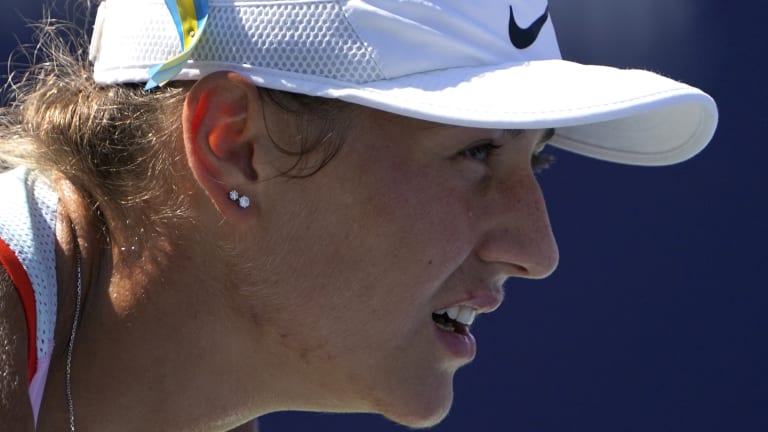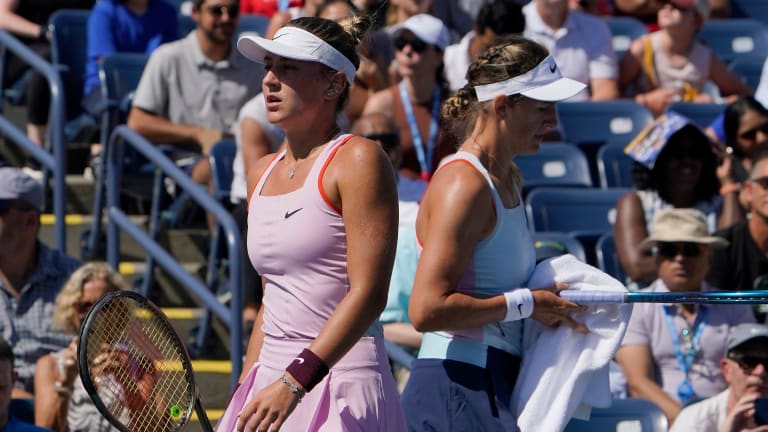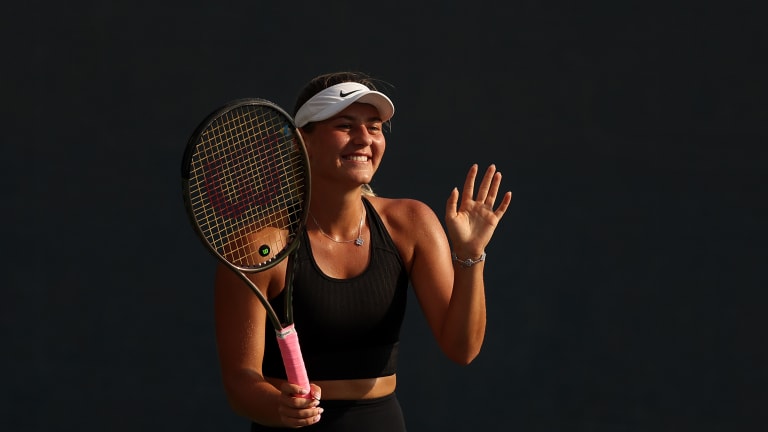Tennis.com Interview
Marta Kostyuk, the Accidental Spokesperson
By Sep 10, 2022Tennis.com Interview
Sebastian Korda chasing match-day butterflies in 2026 after pair of stop-and-go seasons
By Jan 29, 2026Tennis.com Interview
Clara Tauson weathers illness, “boom boom” tennis to advance at Australian Open
By Jan 22, 2026Tennis.com Interview
Elina Svitolina finds strength in stepping back, talks burnout recovery at Australian Open
By Jan 21, 2026Tennis.com Interview
Karolina Pliskova navigates uncertain future after injury odyssey, Australian Open comeback
By Jan 20, 2026Tennis.com Interview
Eliot Spizzirri achieved something “amazing” last year. How much further can he go?
By Jan 16, 2026Tennis.com Interview
Dino Prizmic is ready to make another Melbourne mark, eyes Novak Djokovic reunion
By Jan 13, 2026Tennis.com Interview
Nick Kyrgios brings the show, and new perspective, to Madison Square Garden
By Dec 08, 2025Tennis.com Interview
After longest off-season ever, Tommy Paul talks injury comeback, wedding plans at MSG
By Dec 08, 2025Tennis.com Interview
Following in family footsteps, Elli Mandlik clinches Australian Open return in wild card play-off
By Nov 25, 2025Marta Kostyuk, the Accidental Spokesperson
"I now represent my nation even more than before," the 20-year-old Ukrainian told us at the US Open. "You approach things differently when you are in this position."
Published Sep 10, 2022
Advertising
Advertising

The first few months after the invasion were, Kostyuk said, “incredibly difficult. Super stressful.”
© AFP via Getty Images
Advertising
Advertising

Kostyuk ended her second-round match against Azarenka with a racquet tap, which will continue to replace the handshake with opponents from Russia of Belarus.
© AFP via Getty Images
Advertising

Two psychologists have helped Kostyuk, but she still feels that she and her compatriots inhabit a “different world” from everyone else.
© Getty Images